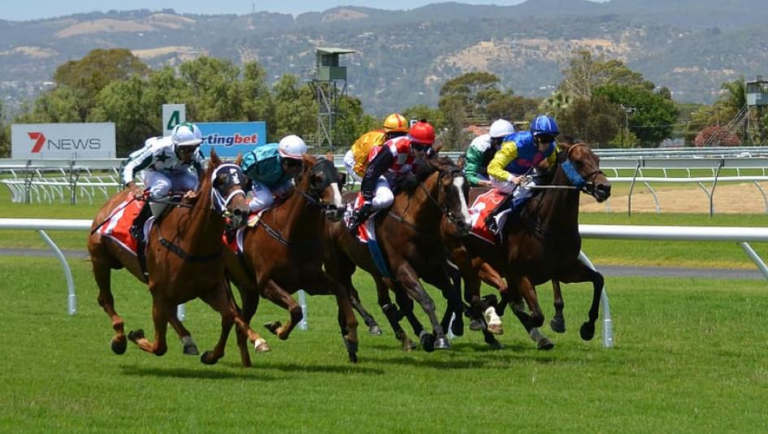Horse racing is one of the oldest sports in history. The first recorded race meetings took place during the reign of Henry II at Smithfield, London, during the annual St. Bartholomew’s horse fair. The event is attested by William Fitzstephen, writing sometime after 1174, and the poet Drayton.
Currently, it is the second-largest spectator sport in Great Britain, generating £3.39 billion in total direct and indirect expenditure for the British economy. In the past, Britain has also been a crucial location for thoroughbred racehorse breeding. Realistically, “English Thoroughbred” is the name for all racehorses, as the breed originated in England. The ancestry of all modern thoroughbred racehorses can be traced back to three foundation sires brought to Britain in the late 17th and early 18th centuries.
Ascot Racecourse
Ascot Racecourse is a dual-purpose British racecourse located in Ascot, Berkshire, England. It is visited by approximately 600,000 people a year, accounting for 10% of all UK racegoers. Ascot was founded in 1711 by Queen Anne and is about 6 miles (9.7 km) from Windsor Castle. Queen Elizabeth II used to visit Ascot Racecourse quite frequently.
The biggest event at this racecourse is the Royal Ascot, which started in 1768. The grandeur of Royal Ascot takes center stage in June. This year’s results saw Kyprios make a remarkable comeback, beating Trawlerman in an exciting Gold Cup duel at Royal Ascot, becoming only the third horse to win the title.
For trainer Aidan O’Brien, Ryan Moore won by a length over the 2022 winner, who, last year, missed the race due to a life-threatening leg injury. Kyprios, not the favorite at 11-10, emerged victorious after a gripping fight on the home straight; Sweet William was third.
The upcoming races in October include the Noel Murless Stakes, Bengough Stakes, Cumberland Lodge Stakes, Cornwallis Stakes, and Bateaux London Gold Cup, just to name a few. Ascot Racecourse is busy year-round with events like family days, including the Spring Family Raceday in March, the Summer Mile Family Raceday in July, the Fireworks Spectacular Family Raceday in October or November, and the Christmas Family Raceday in December.
Newmarket Racecourse
Newmarket Racecourse was founded in 1636. Around 1665, Charles II inaugurated the Newmarket Town Plate, and in 1671, he became the first and only reigning monarch to ride a winner. This racing venue is in Newmarket, Suffolk, and comprises two individual racecourses: the Rowley Mile and the July Course. It is also referred to as the headquarters of British horseracing and is home to the country’s largest cluster of training yards.
The biggest event at this racecourse is the July Cup, a Group 1 flat horse race in Great Britain open to three or older horses. It is known as one of Britain’s most valuable and prestigious sprint races, with many of its winners being acknowledged as the champion sprinters in Europe.
The July Cup was worth £600,000 in 2024, and the winner was Mill Stream, who claimed a tight victory in the 144th edition. Mill Stream finished over a length behind Swingalong when third in the Queen Elizabeth II Jubilee Stakes at Royal Ascot on his last outing on June 22. The upcoming events in October at Newmarket Racecourse include the Challenge Stakes, Cesarewitch Handicap, Zetland Stakes, Autumn Stakes, and Rockfel Stakes, just to name a few.
Betting on Horse Races
Wagering money on horse races is as old as the sport itself. Betting places are a common sight in most towns, typically located where a considerable number of people with disposable cash can be expected. As early as 1938, £500,000,000 was being gambled on horse racing in England, according to the Christian Social Council Committee on Gambling. With the legalization of horse betting in 1960, taxes began to be collected under the authority of various acts of Parliament. For the latest year reported, this action resulted in £103.5 million being collected.
With the exponential advancements in technology, the different sports books covering all these historic horse races have found ways to reduce customer effort. Currently, the Betting Sites UK offer user-friendly interfaces with award-winning customer service agents and, without a doubt, low withdrawal wait times.
Conclusion
The history of horse racing in Great Britain is deep-rooted and influential, shaping the sport globally. The country is often regarded as the birthplace of modern horse racing, with traditions dating back over five centuries. Some of the most prestigious and ancient races, such as the Royal Ascot, epitomize the grandeur and heritage of the sport.
Additionally, the UK is renowned for breeding some of the finest thoroughbreds in the world, contributing significantly to the global horse racing industry. With over 75 races spanning from March to December, there is a wide array of events catering to enthusiasts of all levels, ensuring that the thrill of horse racing is accessible throughout the year. This long-standing tradition and the variety of races available highlight the UK’s pivotal role in the global horse racing scene.

